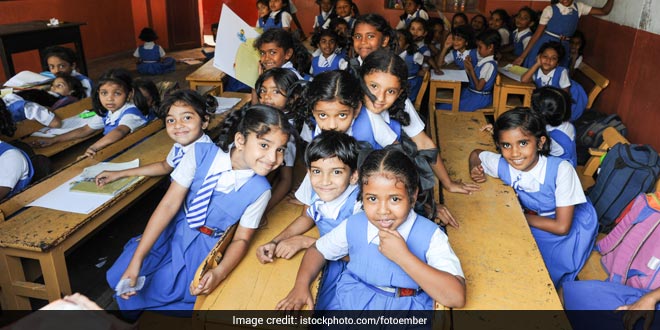New Delhi: With an aim to spread awareness on and promote safe Water, Sanitation and Hygiene (WASH) practices, 60 schools and selected slums in Visakhapatnam, Pune and Dehradun launched the ‘Urban WASH – Swachh Bharat Swachh Vidyalaya’ project. The project was launched by Plan India, in partnership with the U.S. Agency for International Development (USAID) and Coca-Cola India Pvt. Ltd.
The aim is to capacitate students, teachers, School Management Committees, government functionaries and communities on sustainable management of WASH facilities.
This programme has made the children more aware on hygiene and with improvement in infrastructure one sees a change in the behaviour as well, said Mukta Tilak, Mayor, Pune.
Children are the biggest ambassadors of the Swachh Bharat Abhiyan and also agents of change to bring about the change on ground. By inculcating hand washing practices and implementation of the Bal Swachhta samuh (Children’s cleanliness collective), the children are now adapting to the right cleanliness practices.
Jagdish Waghmare, Chief Minister of Bal Swachhta committee shared with NDTV his experience on how he has learnt washing hands the correct way and is now teaching others.
I am the Chief Minister so it is my responsibility to share all important habits with the other students and can see the difference amongst my friends.
Girls have been provided with sanitation facilities and a changing room adding to the comfort along with focus on menstrual hygiene.
Earlier most of us missed school during menstruation but the changing room, a dustbin and a separate toilet has made things easier so we do not sit at home during our periods,” said Ayushka Gawade, class 7 student of the school.
Waste collection, adding greenery, sensitising the students about tree plantation, emphasis on playing with better sports facilities and a playground, vibrantly painted walls have all led to a an effective learning environment with increased admissions and attendance.
Shashi kala Chavan, Headmistress of Pandit Dean Dayal Upadaya Vidya Mandir is extremely happy with the result of the intervention of the programme.
Besides the attendance going up, even the number of admissions has increased and most importantly my children are happy coming to school.
Pandit Dean Dayal Upadaya Vidya Mandir is a model school for the other municipal schools across the city. Besides provision of infrastructural facilities like clean drinking water, toilets and emphasis on behaviour change, one this being translated back to the families and communities of the students. All the stakeholders have worked towards bringing the changes that can be brought about with better sanitation facilities along with environmental consciousness.
NDTV – Dettol Banega Swachh India campaign lends support to the Government of India’s Swachh Bharat Mission (SBM). Helmed by Campaign Ambassador Amitabh Bachchan, the campaign aims to spread awareness about hygiene and sanitation, the importance of building toilets and making India open defecation free (ODF) by October 2019, a target set by Prime Minister Narendra Modi, when he launched Swachh Bharat Abhiyan in 2014. Over the years, the campaign has widened its scope to cover issues like air pollution, waste management, plastic ban, manual scavenging and menstrual hygiene. The campaign has also focused extensively on marine pollution, clean Ganga Project and rejuvenation of Yamuna, two of India’s major river bodies.




















